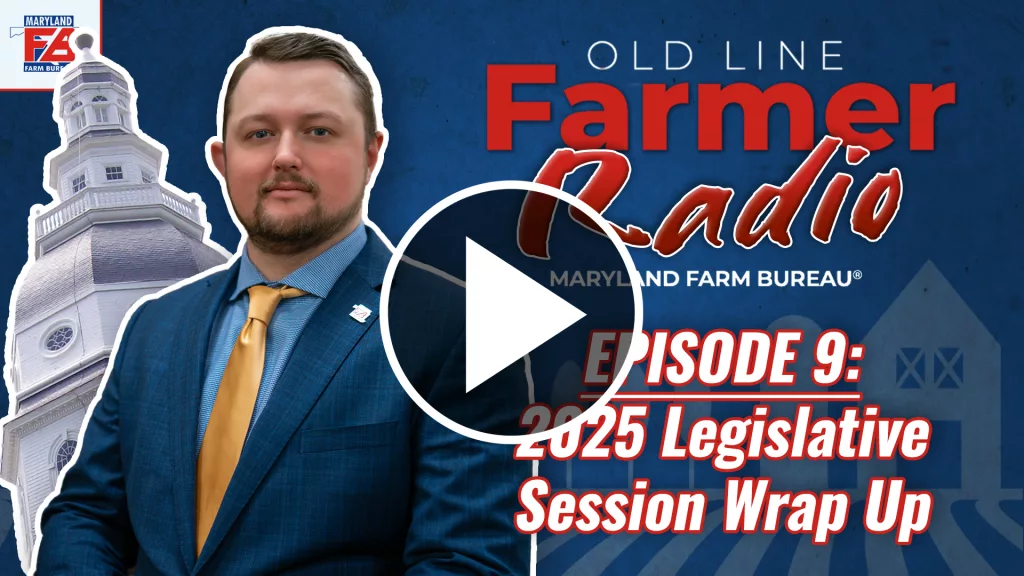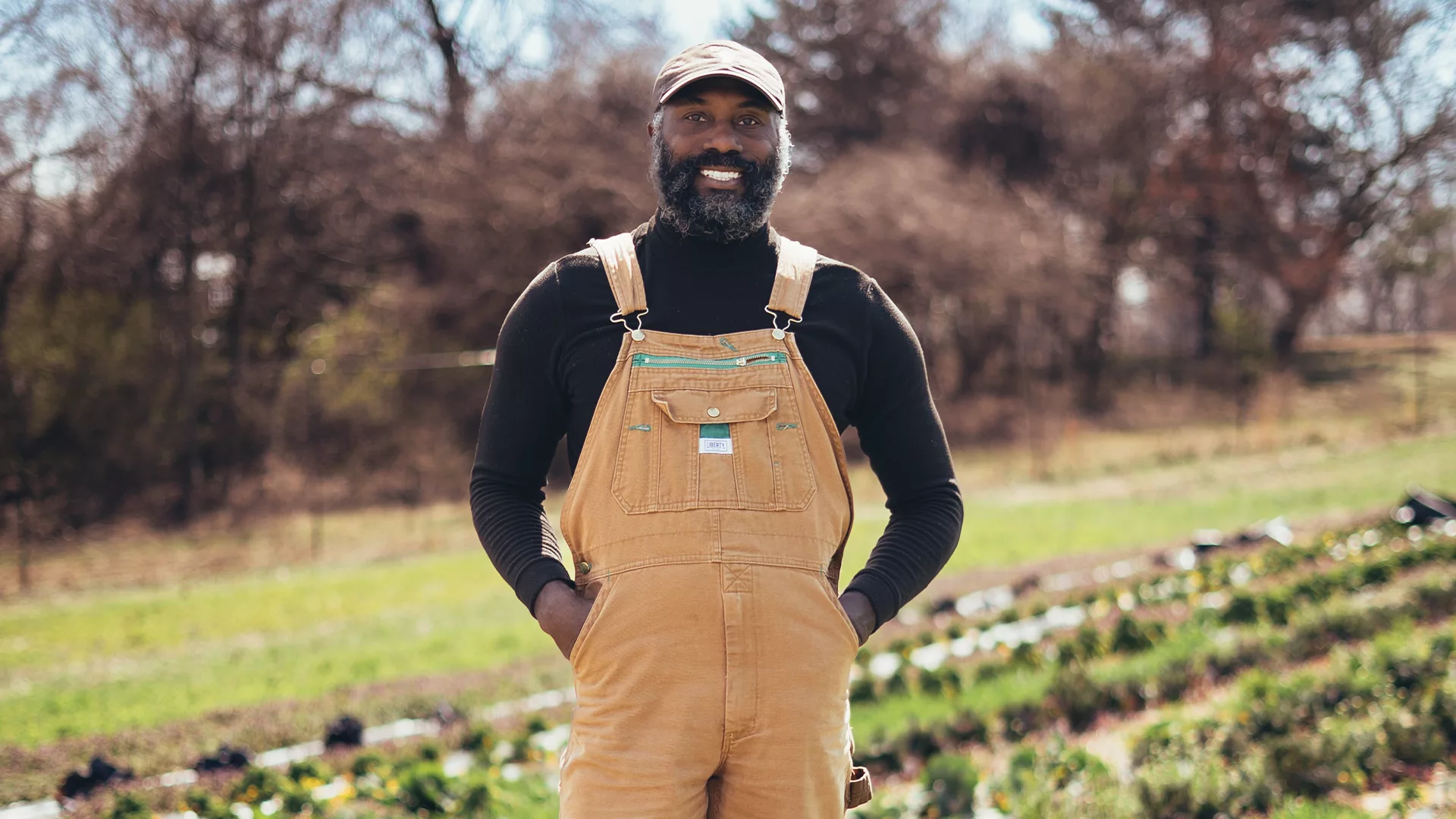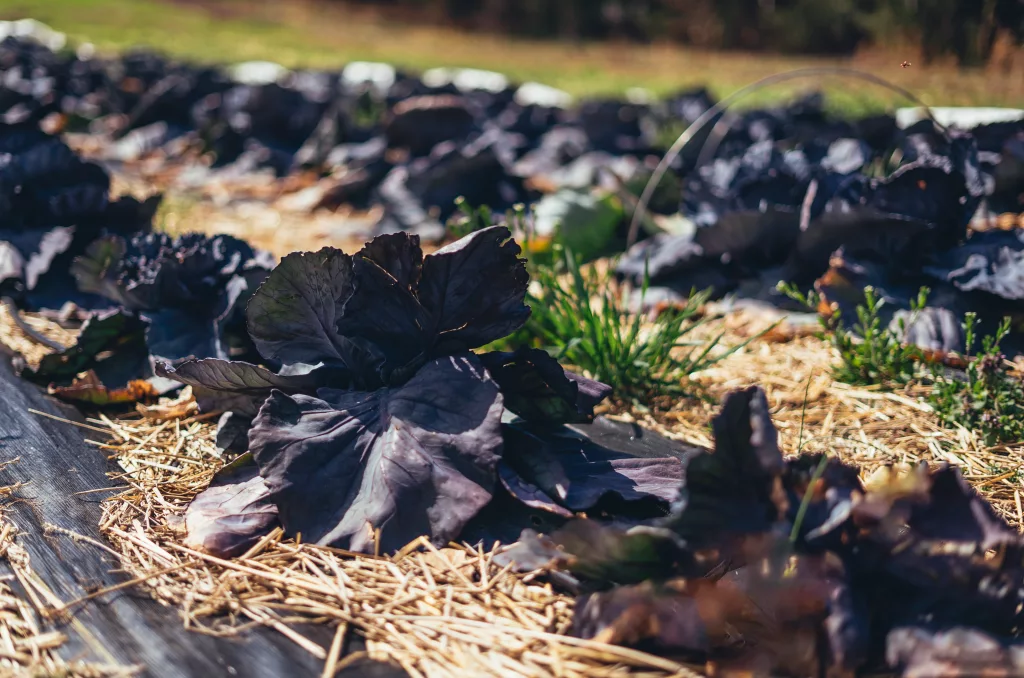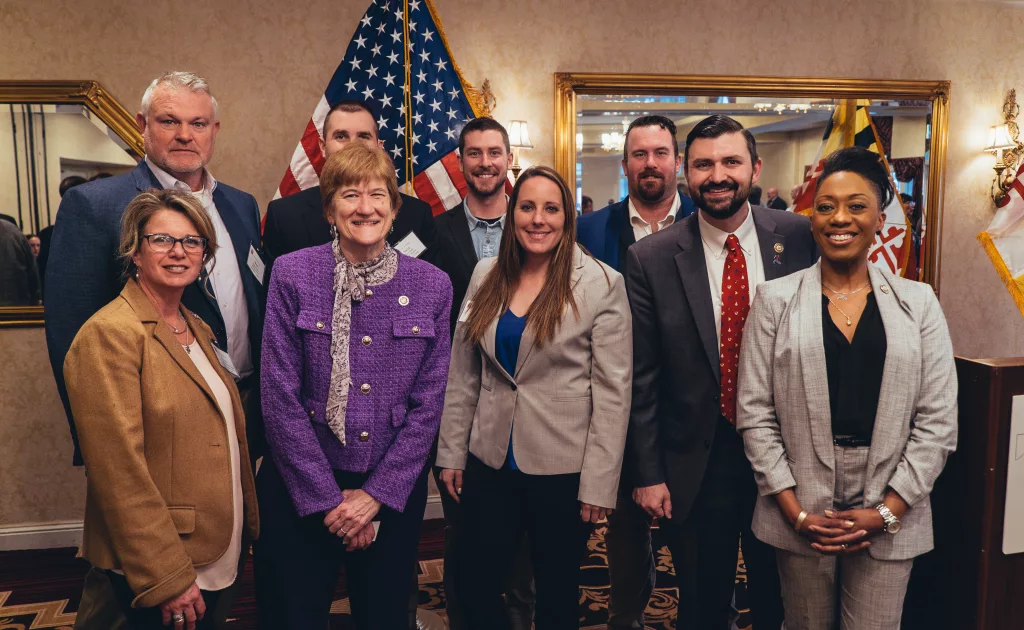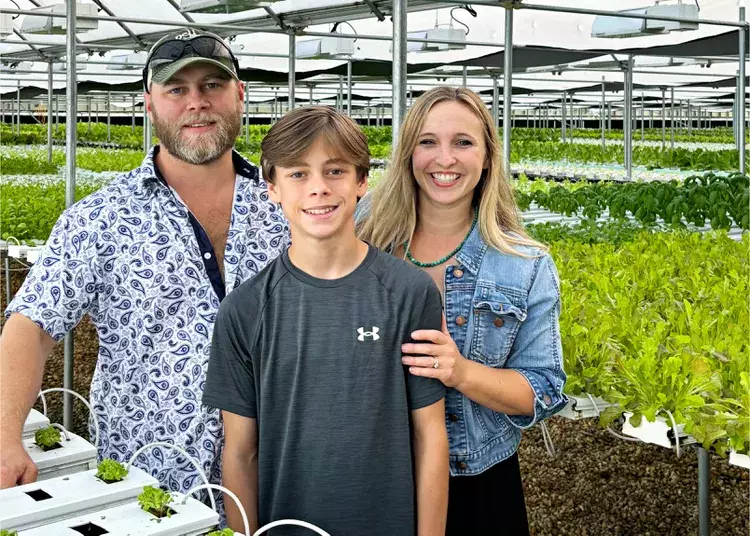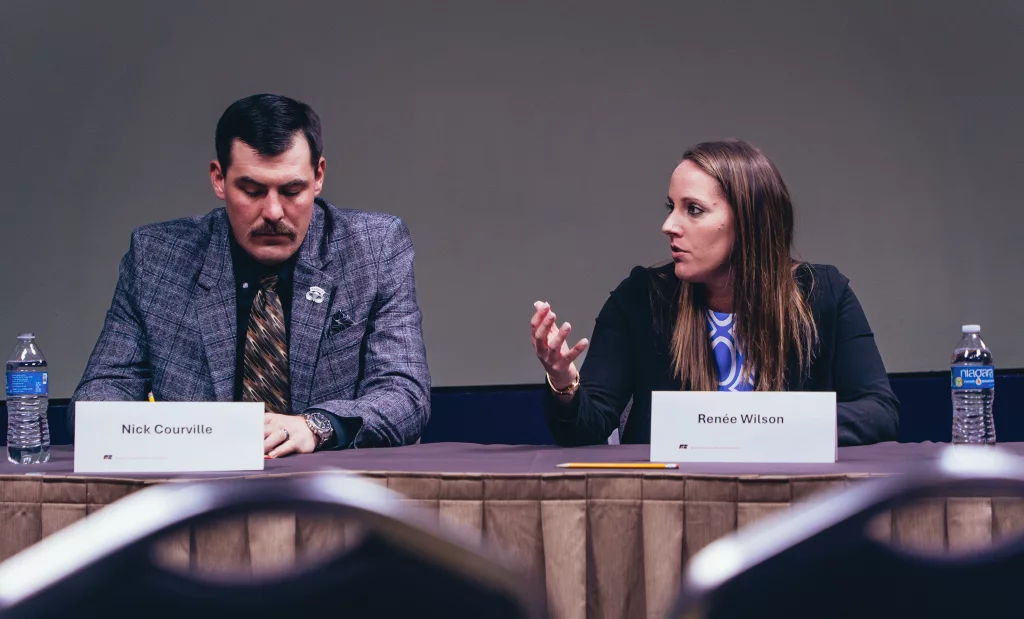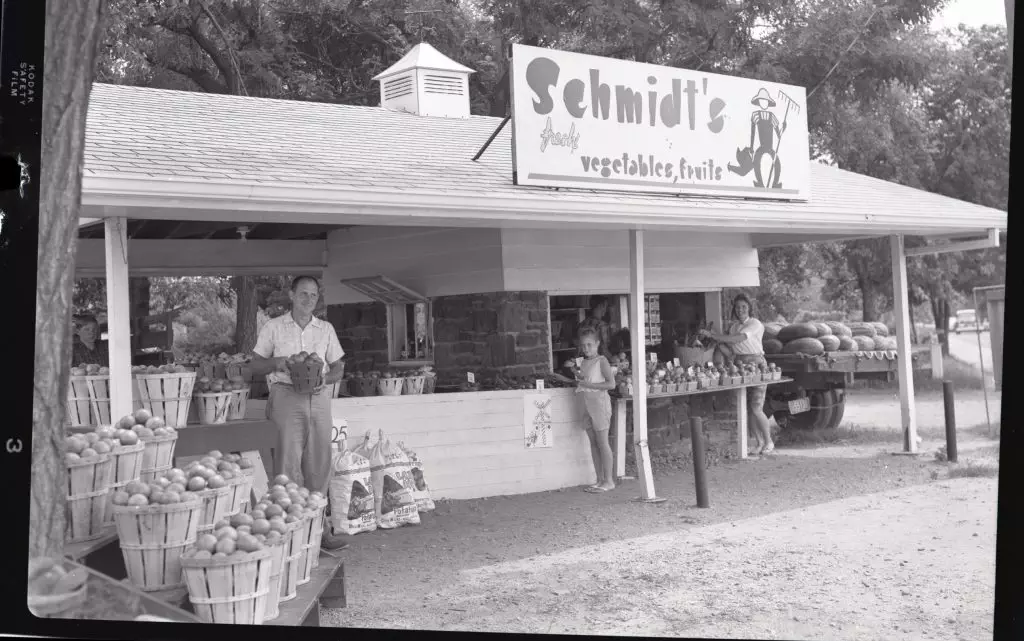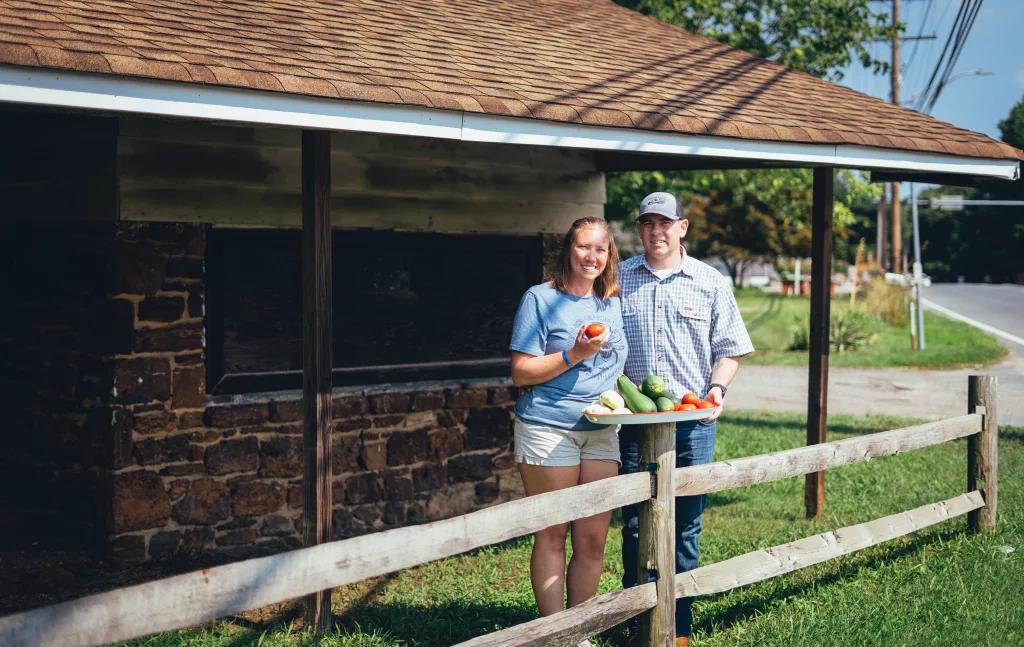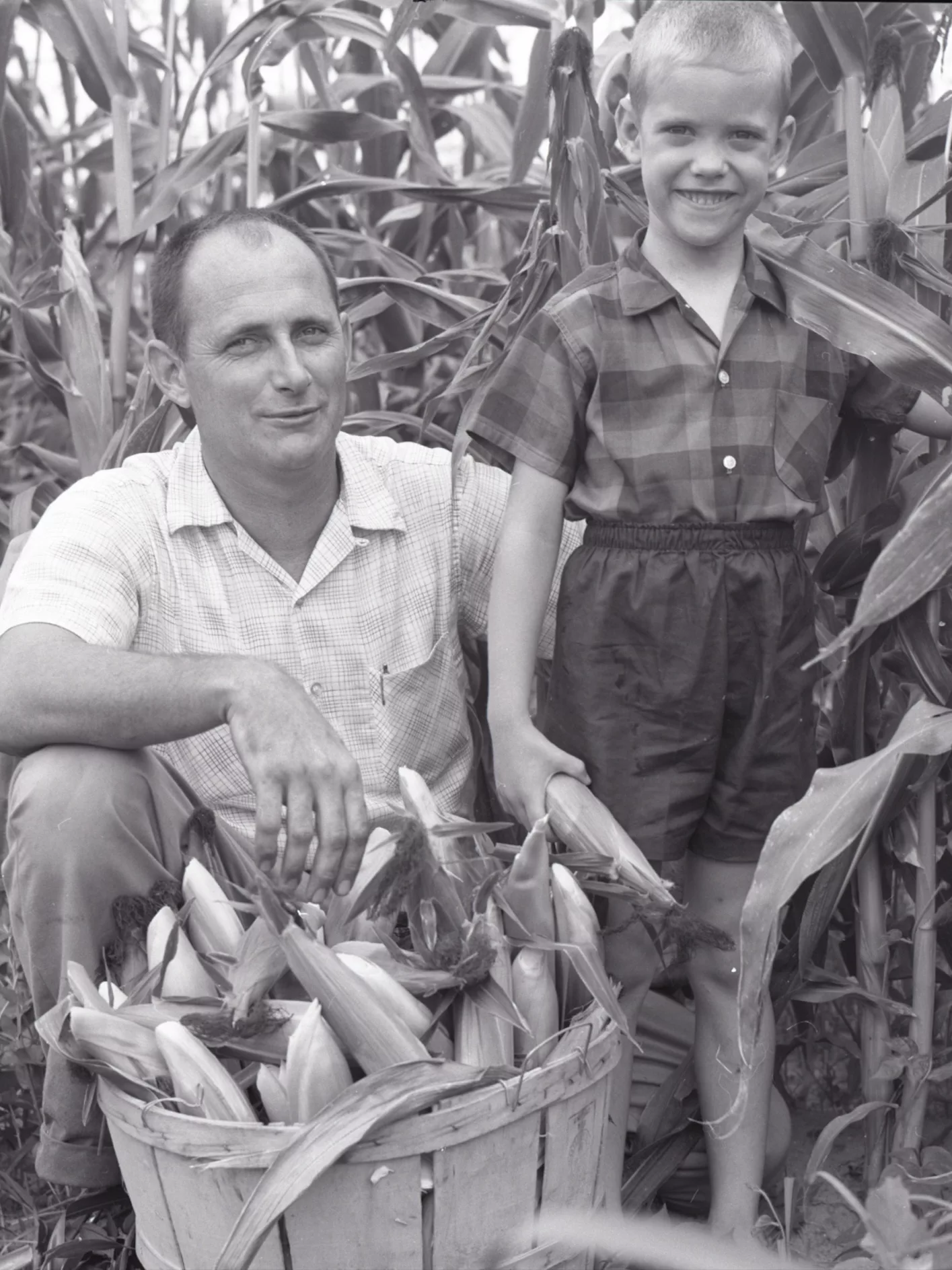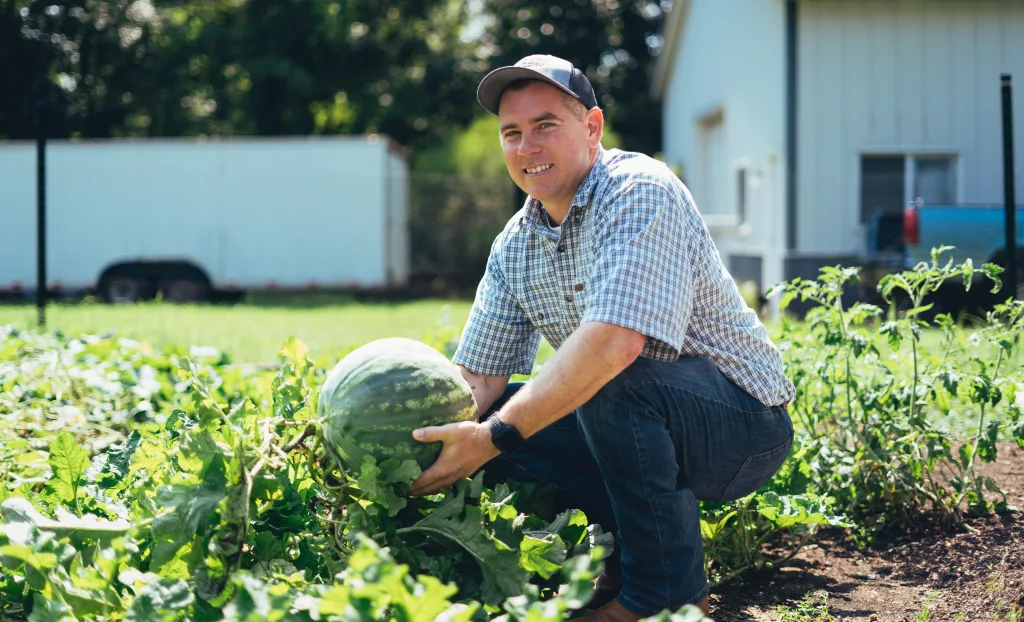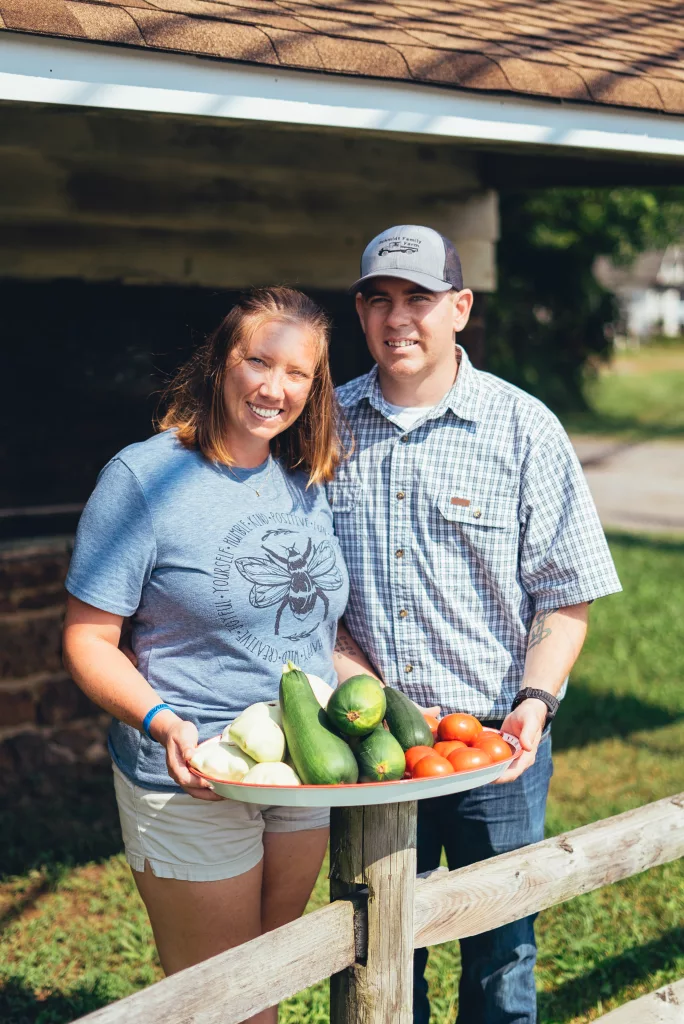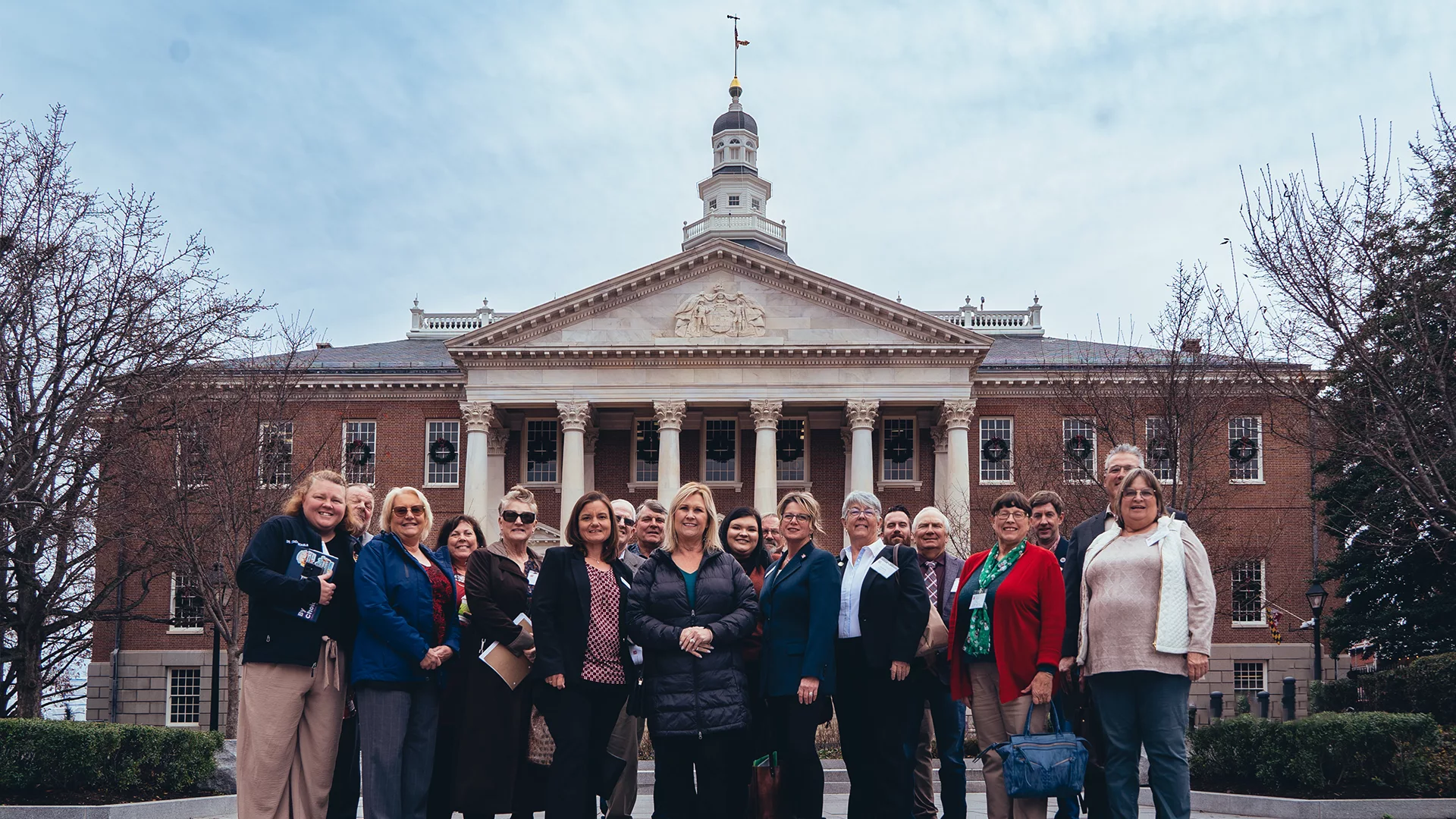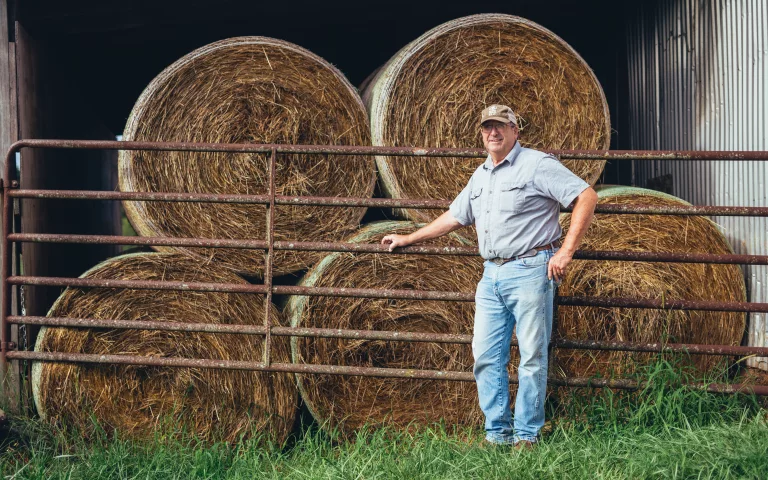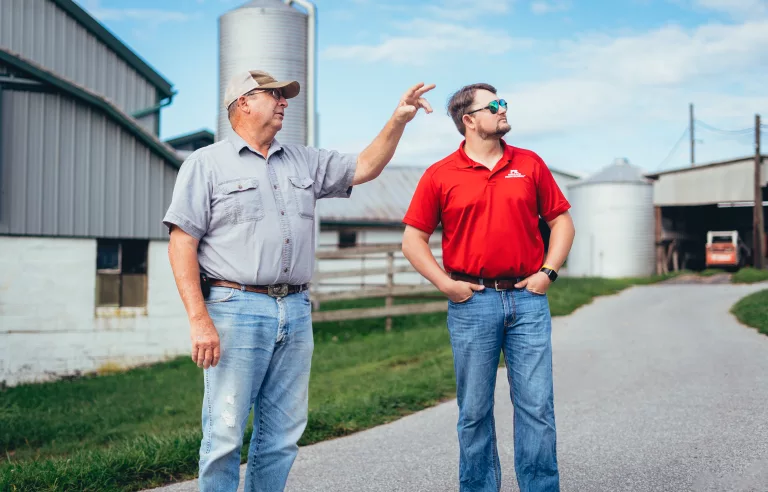ANNAPOLIS, MD: Despite a tough 2025 Maryland General Assembly session marked by efforts to close a $3 billion state budget gap, Maryland Farm Bureau (MDFB) is pleased with the overall outcome for the state’s farming community.
With more than 3,000 bills introduced, MDFB closely tracked over 250 pieces of legislation and provided testimony on 88 bills affecting Maryland agriculture. Thanks to the active engagement of its members, the organization helped shape key outcomes during one of the most fiscally difficult sessions in recent memory.
Through two targeted action alerts, MDFB members sent more than 2,500 messages to their legislators—amplifying the voice of Maryland farmers at an unprecedented level.
“Given the state’s financial challenges, we’re encouraged by the legislature’s decision to partially restore funding for essential agricultural programs and cut unnecessary red tape,” said Tyler Hough, Director of Government Relations for MDFB. “As we move forward, it’s critical that lawmakers continue to recognize agriculture’s foundational role in Maryland’s economy and include farmers in important policy discussions.”
In March, MDFB launched an action alert encouraging members to write their lawmakers to reject Maryland’s Department of Legislative Services (DLS) recommendation forfunding cuts to critical agricultural programs. If adopted, the recommendation would have gutted critical investments in the Maryland Agricultural Land Preservation Foundation, Program Open Space, Maryland Ag Cost Share Program, and the Southern Maryland Agricultural Development Commission. Over 650 messages were sent by MDFB members to their lawmakers against these cuts, and each of these programs saw partial funding restored amidst a difficult budget year.
Our members also wrote over 2,000 messages to their legislators in opposition to SB0931/HB1036, which would allow the state to override local zoning laws to build solar energy projects. The bill has the possibility to cause an extreme loss of finite farmland while undermining local authority. While the bill unfortunately passed, an amendment was included which would place a cap on the state’s zoning authority if 5% of a county’s priority preserved acres are built upon. The bill awaits the Governor’s signature and we will continue to speak out against solar projects taking prime farmland out of production.
Maryland Farm Bureau was also proud to support the following bills which passed both bodies of the General Assembly and await the Governor’s signature:
- HB0225/SB0203: Vehicle Laws – Exceptional Hauling Permits for Farm Products
- Allows for Exceptional Hauling Permits to be issued for field loaded farm products including grain, poultry, and milk.
- HB0262/SB0240: Department of Agriculture – Maryland Agricultural Commission and Young Farmers
- Alters the makeup of the Maryland Agricultural Commission and changes the Young Farmers Advisory Board to the Committee on Young Farmers to more accurately represent the current makeup of Maryland agriculture.
- HB0559/SB0544: Food Establishments – Portable Chemical Toilets
- Allows for portable chemical toilets to meet on-farm agritourism lavatory requirements, reducing infrastructure costs for farmers.
Several harmful bills were successfully defeated, including:
- HB0386/SB0345: Pesticides – PFAS Chemicals – Prohibitions
- Would have banned hundreds of agricultural chemicals beyond federal EPA guidelines without adequate scientific backing.
- SB806/HB834: Agriculture – Confinement of Egg-Laying Hens in Commercial Egg Production – Prohibitions
- Would have forced layer operations to shift to cage-free housing under a burdensome and costly timeline.
In early February, MDFB brought nearly 100 farmers and more than 30 legislators together for its annual Day in Annapolis, providing an important platform for direct communication between farmers and their elected officials.
To cap off the session, Tyler Hough and Executive Director Parker Welch joined the latest episode of Old Line Farmer Radio, MDFB’s official podcast, for a full breakdown of legislative highlights and what lies ahead.
